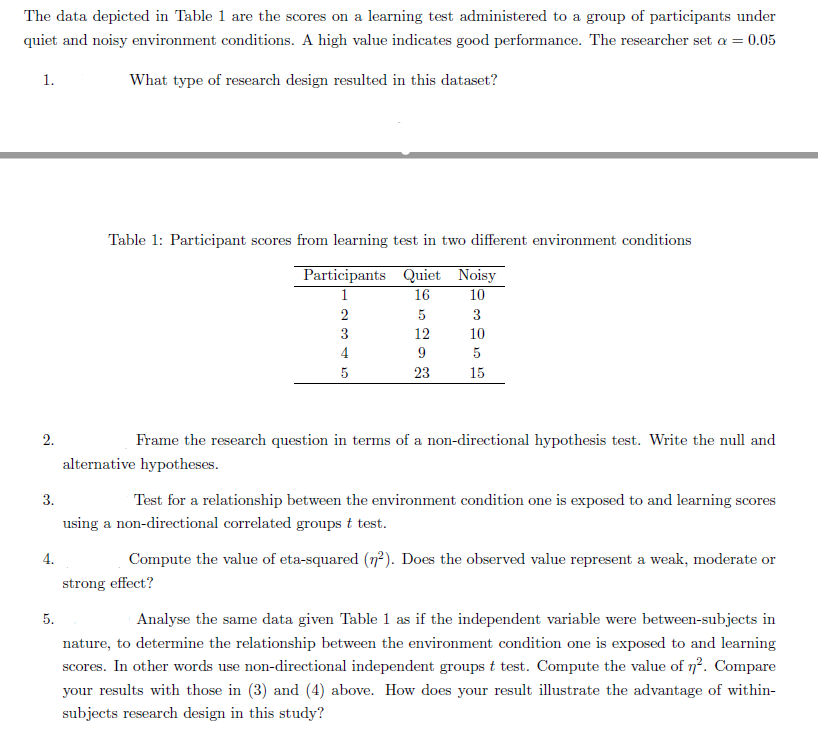Research design problem 1. Imagine you have been appointed as a Research Fellow in the School of Computing and Information Technology to work on

Research design problem –
1. Imagine you have been appointed as a Research Fellow in the School of Computing and Information Technology to work on a project requiring the use of qualitative research methodology. Specifically,
your supervisor told you that a Grounded Theory methodology is to be used. In no more than one page
explain in some detail why your supervisor might have decided to use this methodology? Additionally,
explain how you will analyze data collected in your research in order to complete the project successfully.
Use appropriate illustrative examples to demonstrate that you understand the process. Please do not
copy and paste from the lecture slides because you will lose marks.
2. You are provided with two journal papers:
Owens, J. M., McLaughlin, S. B.,& Sudweeks, J. (2011). Driver performance while text messaging using handheld and
in-vehicle systems. Accident Analysis and Prevention 43(2011), 939-947.
Papadakaki. M., Tzamalouka, G., Gnardellis, C., Lajunen, T. J., & Chliaoutakis, J. (2016). Driving performance while using
a mobile phone: A simulation study of Greek professional drivers. Transportation Research Part F 38(2016), 164-170.
Read the papers carefully and answer the following questions:
(a) (3 Marks) What are the main research questions addressed by the authors of these two papers?
(b) (3 Marks) What are the research methodologies used by the authors in the two papers and why?
3
(c) State and fully justify the research designs adopted in the two papers.
(d) State the dependent and independent variables considered in the two papers, including their scales. How are the independent variables manipulated in the two papers?
(e) On page 178, x3.2 of paper by Papadakaki et al. it was stated that In particular, according to the statistical tests performed, the steering position was significantly affected by text-message reading [t(50) = -5:443; p found regarding the conversation assignment.” Write the hypotheses that led to these results. In which cases were the null hypotheses rejected and what test would have led to such decisions? What is the meaning of significantly” or significant” in this context?
The data depicted in Table 1 are the scores on a learning test administered to a group of participants under quiet and noisy environment conditions. A high value indicates good performance. The researcher set a = 0.05 What type of research design resulted in this dataset? 1. 2. 3. 4. 5. Table 1: Participant scores from learning test in two different environment conditions Participants Quiet Noisy 1 16 10 23 2 4 5 5 12 9 23 3 10 5 15 Frame the research question in terms of a non-directional hypothesis test. Write the null and alternative hypotheses. Test for a relationship between the environment condition one is exposed to and learning scores using a non-directional correlated groups t test. Compute the value of eta-squared (n). Does the observed value represent a weak, moderate or strong effect? Analyse the same data given Table 1 as if the independent variable were between-subjects in nature, to determine the relationship between the environment condition one is exposed to and learning scores. In other words use non-directional independent groups t test. Compute the value of n. Compare your results with those in (3) and (4) above. How does your result illustrate the advantage of within- subjects research design in this study?
Step by Step Solution
3.46 Rating (149 Votes )
There are 3 Steps involved in it
Step: 1
Answer 1 Grounded Theory is a qualitative methodology that is used to generate theory from data that has been collected and analyzed This approach involves coding and analyzing data using the constant ...
See step-by-step solutions with expert insights and AI powered tools for academic success
Step: 2

Step: 3

Ace Your Homework with AI
Get the answers you need in no time with our AI-driven, step-by-step assistance
Get Started


